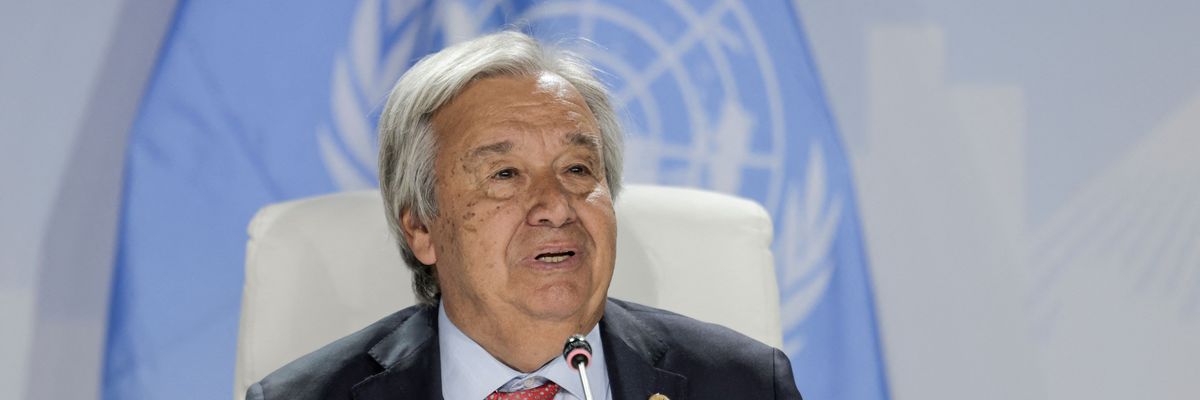The head of the United Nations marked the International Day Against Nuclear Tests on Tuesday by warning that the combination of surging distrust worldwide and accelerating nuclear modernization efforts is "a recipe for annihilation."
"This year, we face an alarming rise in global mistrust and division," said U.N. Secretary-General António Guterres, who noted that there are currently close to 13,000 nuclear weapons stockpiled across the globe. The United States and Russia control around 90% of the global nuclear arsenal.
"Countries are working to improve their accuracy, reach, and destructive power," Guterres added. "A legally binding prohibition on nuclear tests is a fundamental step in our quest for a world free of nuclear weapons. The Comprehensive Nuclear-Test-Ban Treaty, though not yet in force, remains a powerful testament to humanity's will to lift the shadow of nuclear annihilation from our world, once and for all."
Guterres urged all nations that have not ratified the treaty to do so "immediately, without conditions."
The U.S. is one of a handful of nations that have yet to ratify the Comprehensive Nuclear-Test-Ban Treaty (CNTBT), which prohibits all nuclear explosions. As Guterres noted Tuesday, "more than 2,000 nuclear tests have inflicted terrifying suffering on people, poisoned the air we breathe, and ravaged landscapes around the world" since 1945, the year the U.S. dropped nuclear bombs on Hiroshima and Nagasaki.
Daryl Kimball, executive director of the Arms Control Association, wrote Tuesday that "the Biden administration has done none of the outreach and education that will be necessary to secure treaty ratification by the Senate."
"Given that the United States has not conducted a nuclear test in more than 30 years and has no technical, military, or political reason to resume testing, the national security case for ratification and for strengthening the barriers against testing by others is even stronger than when the treaty was last considered by the Senate in 1999," Kimball added.
Meanwhile, the administration is moving ahead with nuclear modernization initiatives that critics have decried as "wasteful and dangerous." The Congressional Budget Office estimates that the United States' nuclear forces will cost the nation $756 billion over the next decade.
Last week, the Pentagon described nuclear modernization as "a top priority," echoing the Biden administration's widely criticized Nuclear Posture Review.
